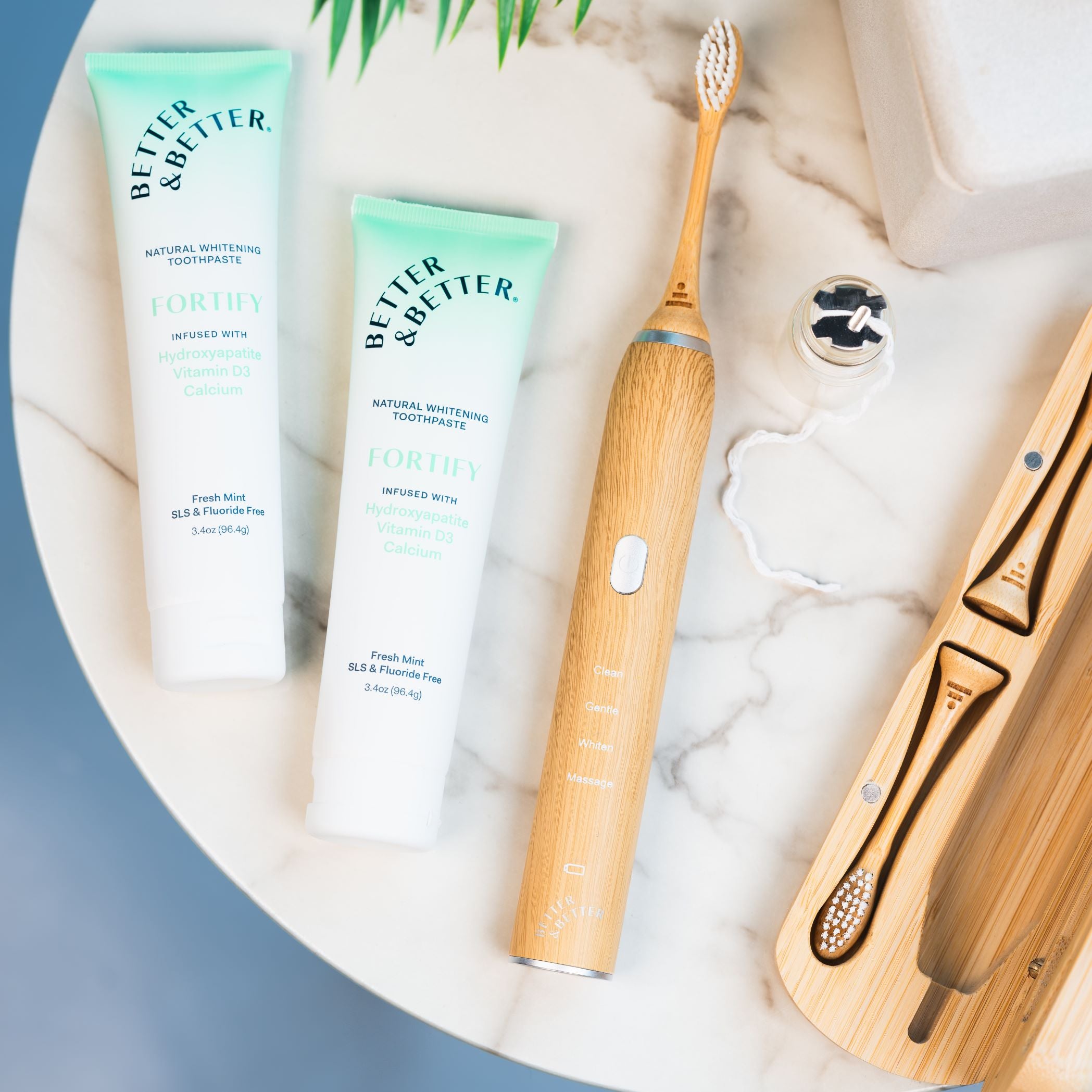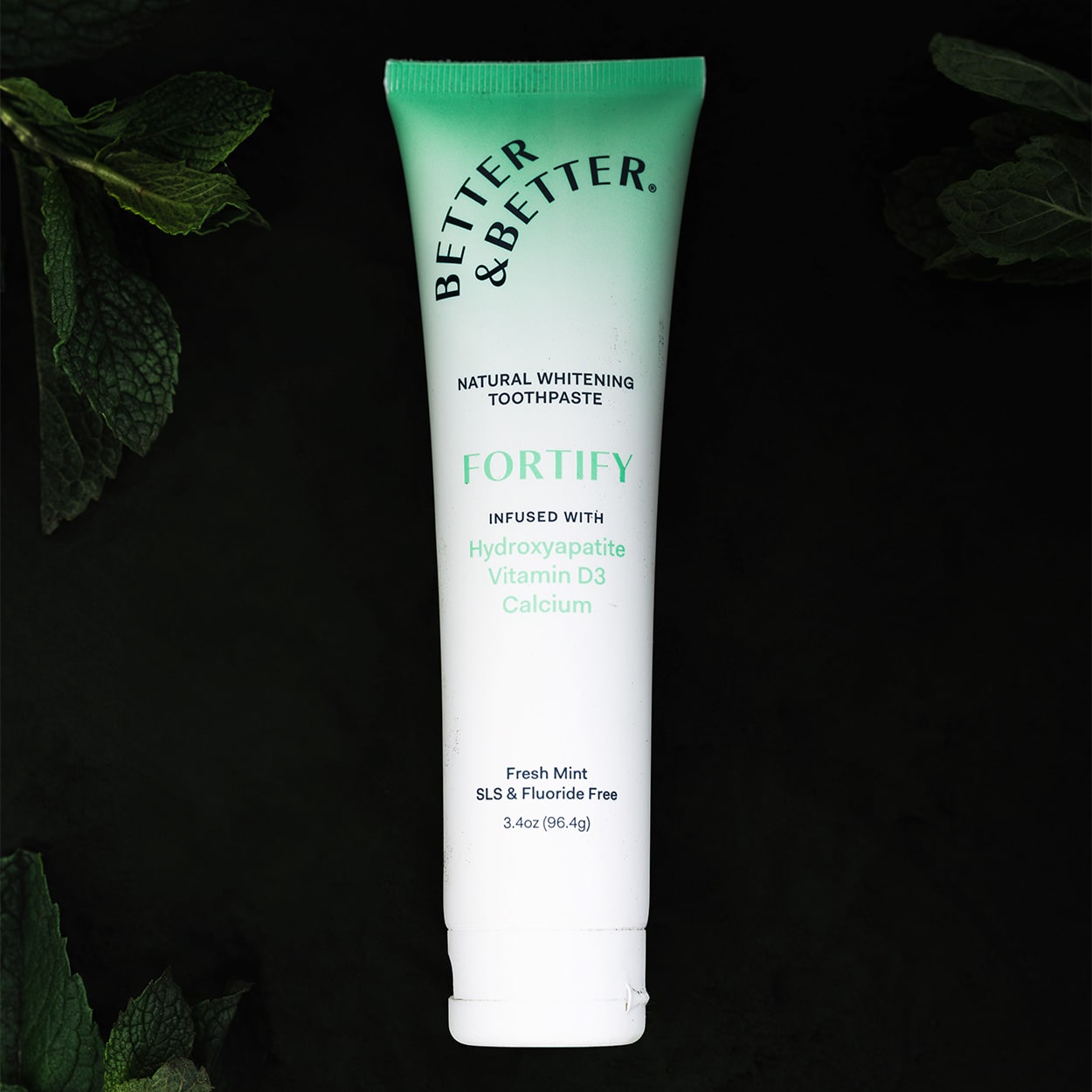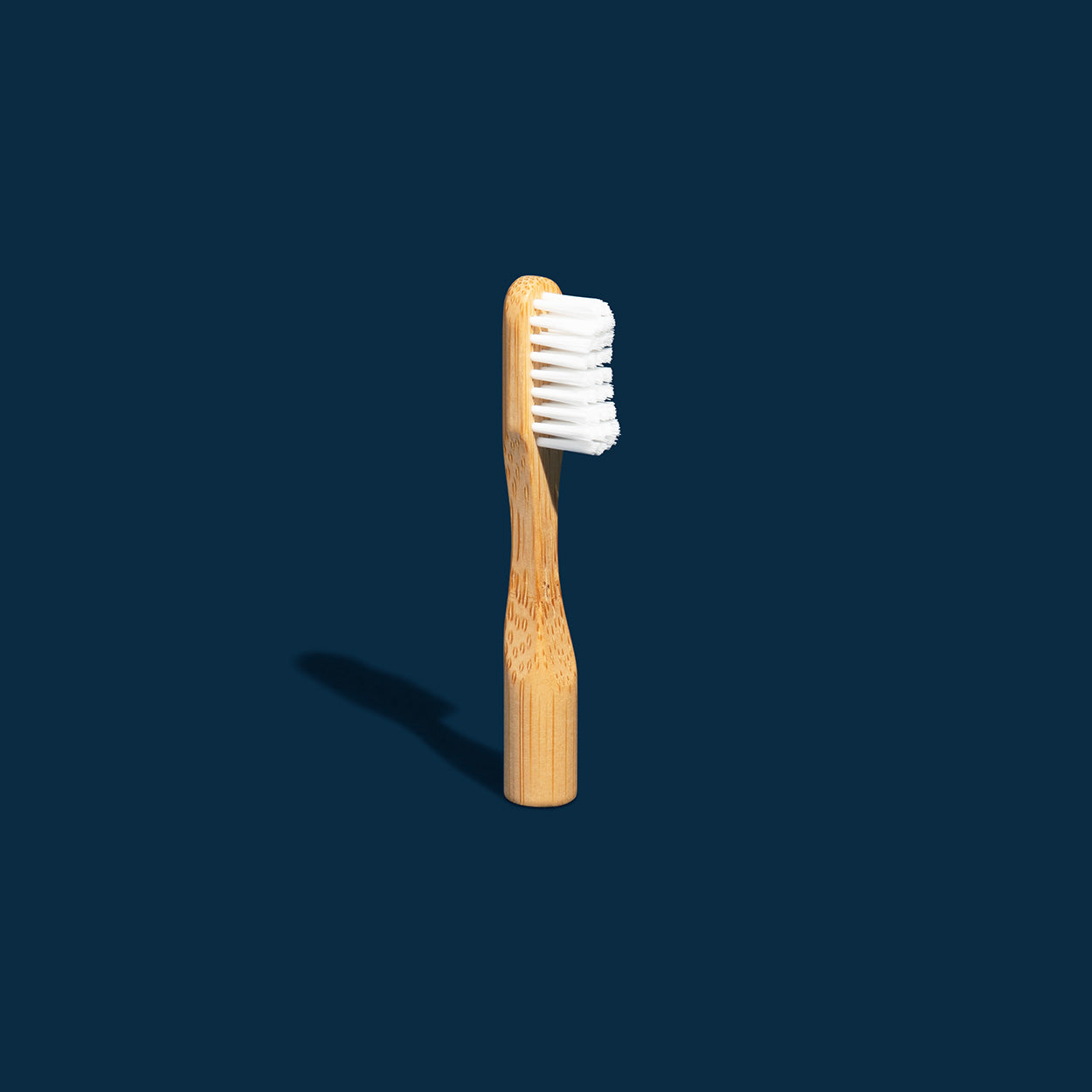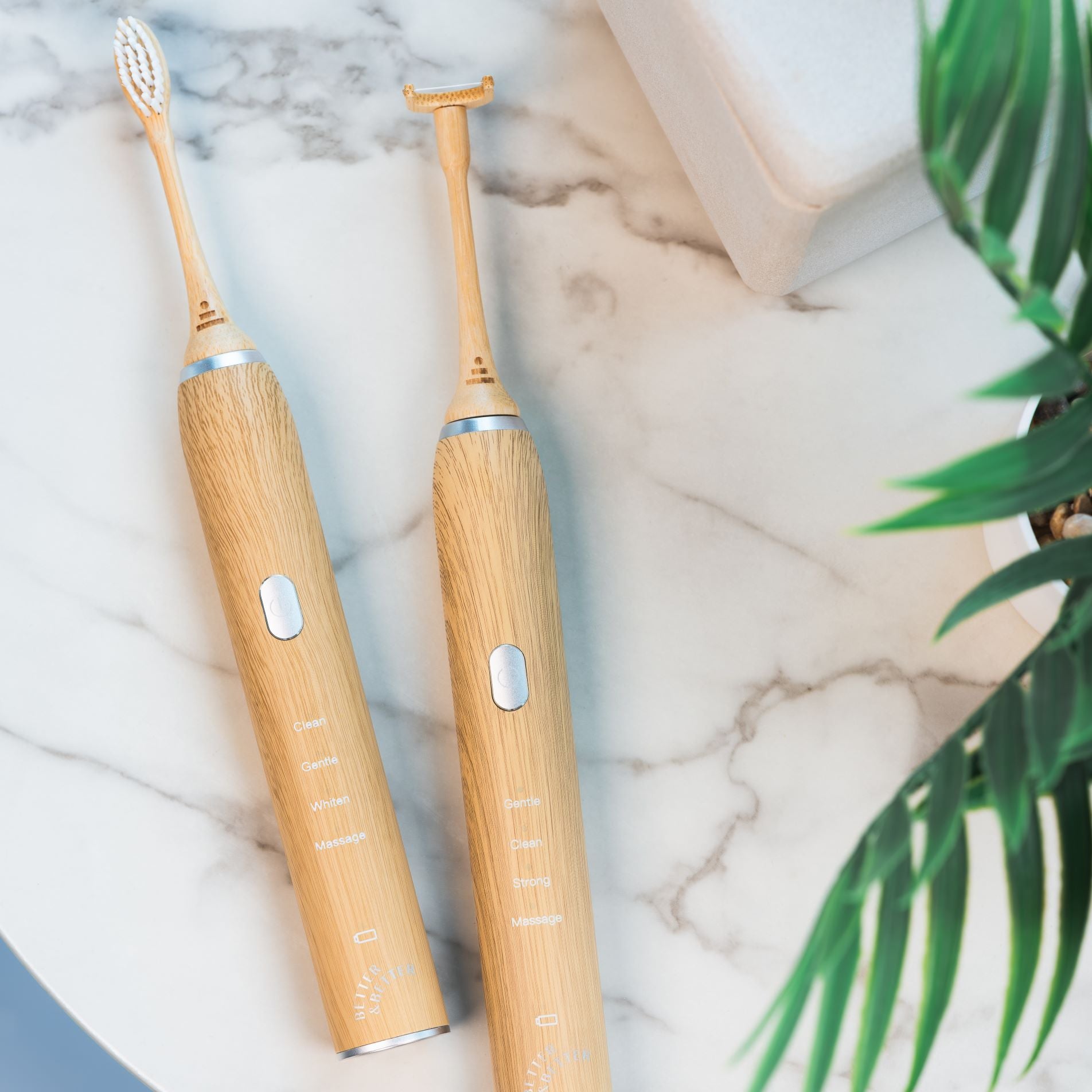The Reverie
6 Links Between Your Oral Health and Mental Health (and How to Manage Them)
Growing up, most of us thought brushing and flossing were the only ways to take care of our teeth. But there’s another not-so-obvious factor that can make or break your dental health: your mental health.
Learn moreWhen Can Kids Use Adult Toothpaste? An Oral Surgeon Explains
Wondering when kids can make the switch to adult toothpaste? Our resident oral surgeon Dr. Jacci has the answer, plus expert insights to help little ones establish better brushing habits.
Learn more3 Reasons Xylitol Is Good For Your Teeth (and How to Use It)
You’ve been told to stay away from sweets to protect your pearly whites. But this natural sweetener prevents cavities, remineralizes your teeth, and regulates your oral pH.
Learn moreShould You Brush Your Teeth Before or After Drinking Coffee?
In a habit of brushing your teeth right after your morning coffee? You might be doing more harm than good. Here’s how to sync up your oral care routine with your coffee routine.
Learn moreHow to Brush After Getting Your Wisdom Teeth Removed: An Oral Surgeon Explains
Dr. Jaclyn Tomsic, MD, DMD, FACS, is a board-certified Oral and maxillofacial surgeon (OMF) based out of Cleveland, OH. OMF involves extensive dental and medical education and training to achieve surgical expertise and an unparalleled understanding of esthetics.
Learn moreSonic vs. Electric Toothbrushes: 4 Key Differences, Explained
About 41% of adults opt for an electric toothbrush over a manual one. But there’s a special type of electric toothbrush that blows the competition out of the water: sonic toothbrushes. Learn why these super-powered gadgets are a dentist’s delight.
Learn moreToothpaste Allergies: All the Symptoms and Causes You Need to Know Before You Brush
From foaming agents to fake flavors, there are all kinds of potential allergens lurking in your toothpaste. Here are some symptoms to look out for and how to find relief.
Learn moreIs Sparkling Water Bad for Your Teeth? We Settled the Debate
Is opting for sparkling over still a bad choice for your teeth? We studied the data to see how carbonated water affects your pearly whites.
Learn moreIs Mouthwash Bad for Your Mouth? Dr. Jacci’s Take
Is mouthwash a part of your oral routine? It may being doing more harm than good.
Learn more















